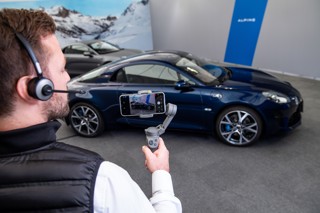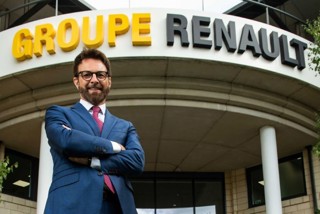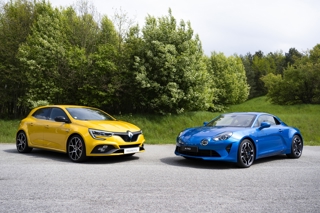Every sector of retail is feeling the pressure as technology transforms how we buy and car dealerships find themselves in the thick of this period of change.
Car retailers currently have to deal with customers who have researched in detail the specification of the vehicle they want before they ever step onto the showroom floor and are frequently more expert about the technology than the sales staff they speak to.
Customers’ expectations of their purchase experience are now conditioned by their online browsing habits, where a greater level of detail and endless option combinations are much more readily available.
The showroom experience used to be an event where the dealers could add value to the overall customer experience: walking the customer through all the vehicle features and what makes it special.
But advancements in technology have made that process fraught with challenges and dealers are having to step up their game to get around the demise of the traditional sales experience.
It’s no surprise all this change is leading to profit warnings and consolidations.
Dealerships need to respond to these new trends and that could mean anything from mobile apps to Augmented and Virtual Reality offerings.
They need to respond to the trend for experience centres and play to the customer appetite for novelty and a creative sales process.
This is being addressed by some manufacturers such as Hyundai and their Rockar stores; providing the ‘new sales experience’ through a non-salesy retail experience; or Citron DS with their Urban Store and Virtual Reality offerings.
And it’s not the same technology that drivers wanted thirty years ago.
The petrolheads aren’t dead
Interest in top speeds and sweet engine sounds clearly still exists, but customers are increasingly looking first at emissions standards, in-car entertainment suites and technology like parking sensors that provide more autonomy and help to the driving experience.
The ‘petrolheads’ aren’t dead, but they’re being overtaken by groups with a new set of both environmental and infotainment interests.
On top of that, driverless cars are making all the headlines right now and dealers have to both expect questions from potential customers and be proactive in how they approach this significant change.
At the moment the technology is still building its name, Tesla, Audi and Google have hit the headlines recently in this space and Volvo has also begun doing some limited testing with the public in Sweden.
The big questions are trust and regulation, people have to be 100% confident in an autonomous car’s safety and ability to avoid collisions before they step inside.
Aside from that, the hurdles of legislation considerations, insurance clarifications, and smart road development are still to be overcome. We’re still a long way from accepting the self-driving entertainment pods we see in the headlines.
Share and share alike?
And if the changing face of technology wasn’t enough of a challenge for dealerships, the growth of the sharing economy is putting additional pressure on the very concept of car ownership.
Alternative options such as car clubs and Uber are already chipping away at this and the inner cities of the future will likely be festooned with a network of driverless electric vehicles. In short, car ownership will likely become increasingly seen as an unnecessary luxury by many.
At the moment, with sharing economy options limited to major urban areas, car ownership is still very much a necessity in more rural regions.
But even that model is under pressure as more and more drivers look to personal leasing alternatives.
All the growth right now is in Personal Contract Hire (PCH), with numbers rising 36% in Q2 this year according to industry body the BVRLA.
Add to this the millennial and post-millennial culture of subscription based services rather than ownership, and this is a trend that is only going to grow.
That means dealerships are also becoming fleet managers: they have to manage the customer’s leasing experience more than ever, which means a greater focus on what would previously have been seen as after-sales care and services.
The car is just one part of a larger customer experience.
Furthermore, disruptive companies like carwow are making the dealers compete nationally to an unprecedented degree and removing the relationship from the customer one step further again.
It begs the question, what can dealerships do to survive and thrive in this brave new world?
Trust and agility
Firstly, it’s about trust. That’s in short supply in the automotive world right now thanks to emissions scandals, but they have to show that they have the customer’s interests and needs at heart and can offer advice on Alternative Fuel vehicles, new in-car tech and mobility solutions that customers can believe in.
Secondly, it’s about being agile and nimble. Dealerships are going to have to prove that they can talk to customers in the language of the modern, tech-savvy consumer.
They have to be flexible to multichannel sales and respond to the emerging experience centre trends.
And perhaps most of all, dealers are going to have to understand that automotive retail, like the broader industry, is changing beyond all recognition.
The sales channels and approaches that worked so well in the 1980s and 90s now make them appear old and out of date.
Instead, people want the Apple Store tablets and McDonald’s touchscreens, combined with face-to-face service from people who always have the answers at their fingertips.
Author: Lisa Bedwell, senior research director at research agency Future Thinking

















Login to comment
Comments
No comments have been made yet.